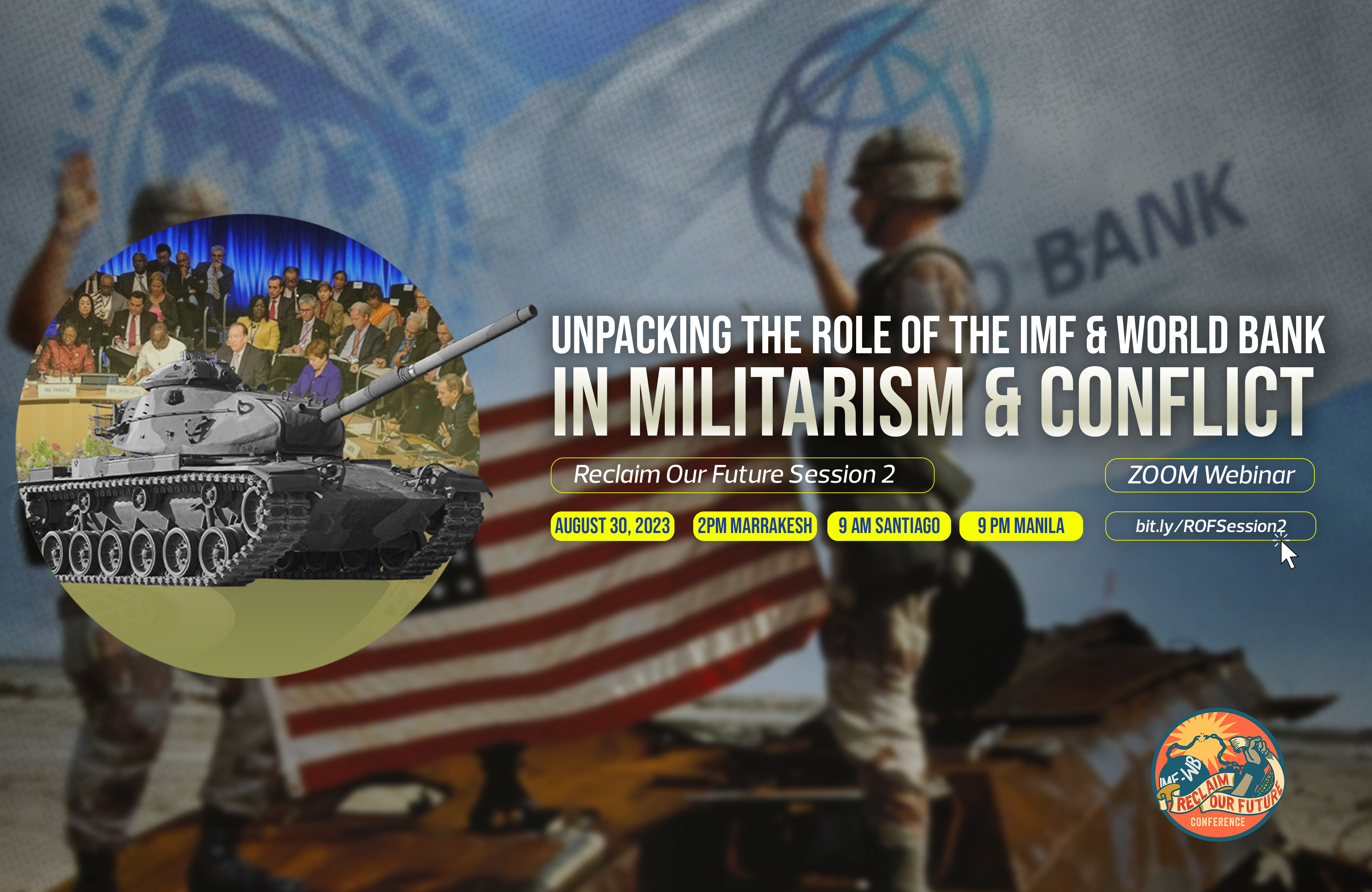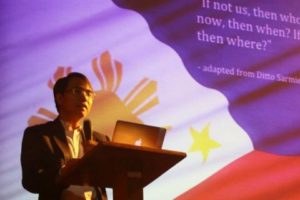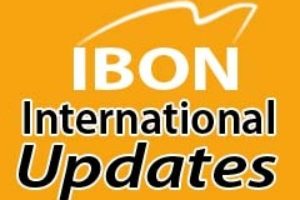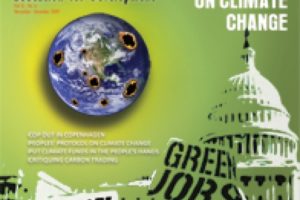Unpacking the Roles of the IMF-WBG in Militarism and Conflict
30 August 2023
2 PM Marrakesh/9 AM Santiago/9 PM Manila
Historically, the United States (US) along with the United Kingdom (UK) led the establishment of the International Monetary Fund (IMF) and the World Bank Group (WBG) towards the end of the Second World War to finance reconstruction efforts. The IMF and the WBG have reinvented their roles, especially in contexts of economic and political crises, to maintain the dominance of US private capital over economies, especially in the global South.
In the 1960s-70s, the IMF and the WBG financed and colluded with dictatorships, such as in Chile, Brazil, and the Philippines, to facilitate proto-neoliberal reforms. IFI loans were used by dictatorships to reinforce their power violently and to further their private interests. Years after the overthrow of these dictatorships, peoples suffer from debt burdens and socioeconomic impacts.
The IMF and the WBG were involved in post-conflict reconstruction in Rwanda, East Timor, Bosnia-Herzegovina, Palestine, El Salvador, and Lebanon. Their roles in conflict interventions and peacebuilding have been increasingly legitimized over the years, such as through its work on crisis responses, including the link of humanitarian, development, and peace.
Today, the IMF and the WBG have increased their roles in and resources for conflict interventions and peacebuilding. The WBG considers conflict intervention a “central priority,” and allocates 20-25% of its lending to conflict-related financing. IFIs take advantage of conflict situations to further undermine people’s sovereignty and introduce neoliberal reforms to stabilize conditions for the entry of big businesses and private capital.
Moreover, the IMF and the WBG’s debt and neoliberal dictates to countries in the global South have also perpetuated conditions for conflict. The IMF’s austerity measures have hollowed out social infrastructure and services, and exacerbated inequalities. The WBG has funded destructive, mega-infrastructure projects that violently displace Indigenous Peoples from their ancestral lands and that has affected the lives of farmers, workers, women and children, and other sectors. It has also supported market-assisted land reforms that have been implemented in militarized contexts.
The session aims to examine the IMF and WBG’s history and present policies to show how these serve US imperialist economic and geopolitical interests, and perpetuate systemic barriers to peace based on social justice and people-centered development in the global South. #



